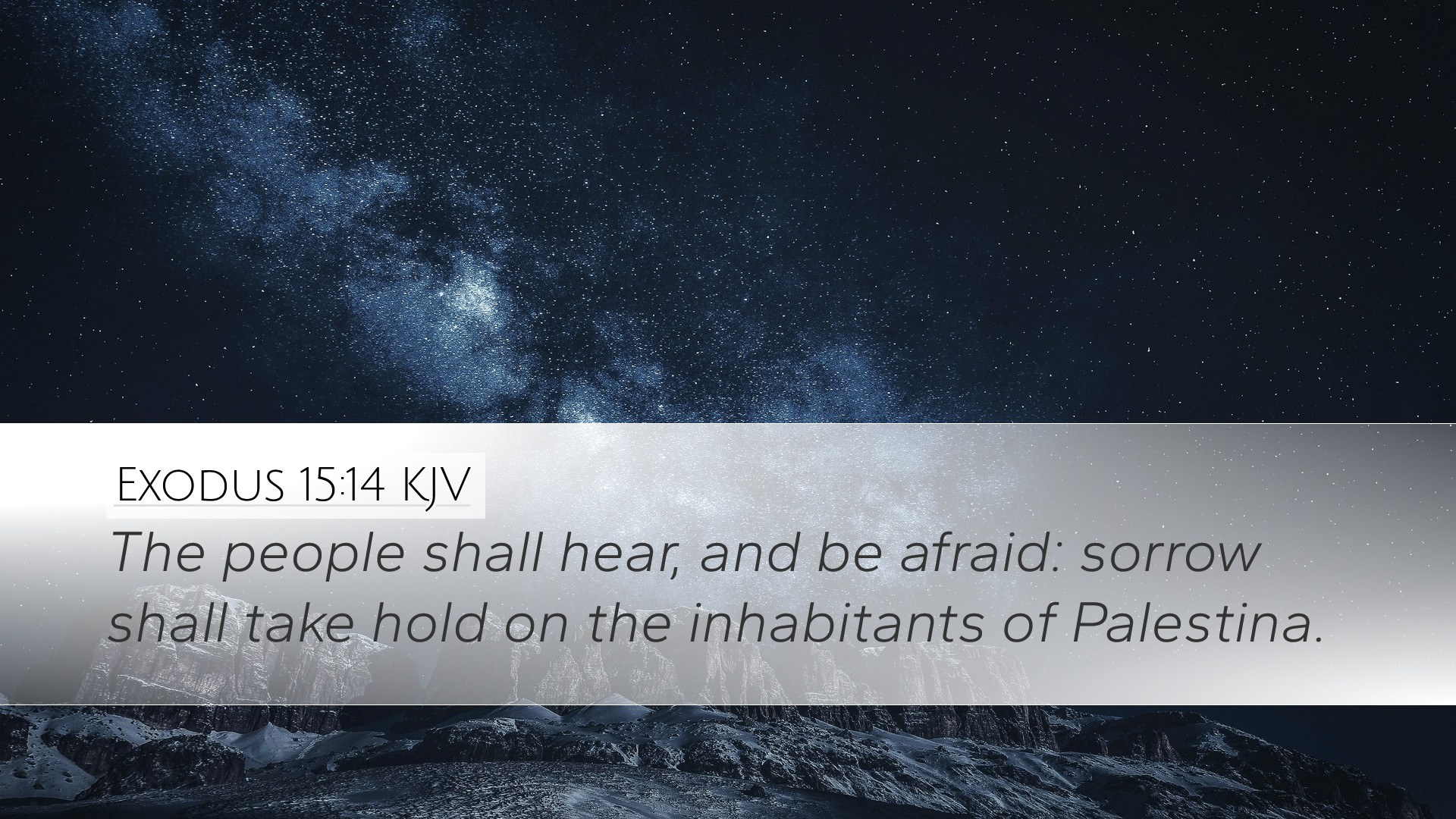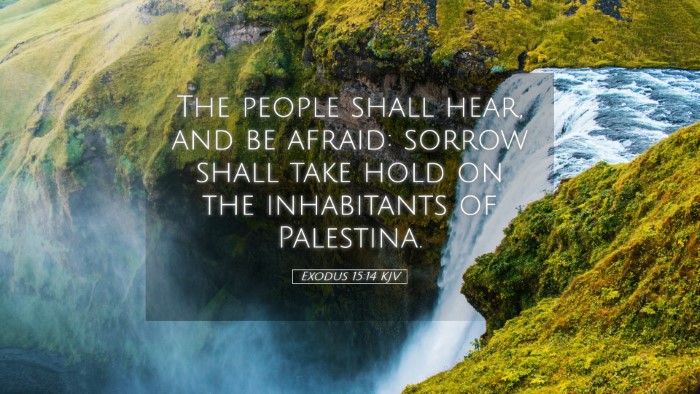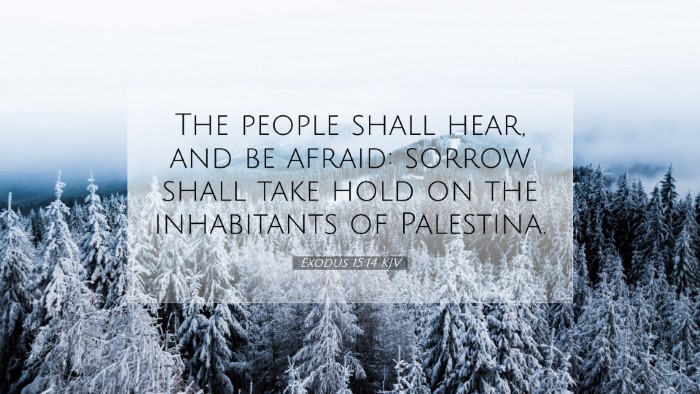Commentary on Exodus 15:14
Verse Context: Exodus 15:14 states: "The people shall hear and be afraid: sorrow shall take hold on the inhabitants of Palestina." This verse occurs within the context of Moses' song of triumph after the Israelites' miraculous crossing of the Red Sea. It celebrates God's victory over Pharaoh and His powerful acts of deliverance.
Introduction
This commentary synthesizes insights from respected public domain commentaries, shedding light on the theological and historical significance of Exodus 15:14. Such exploration serves to enrich understanding for pastors, students, and scholars alike.
Theological Perspectives
Fear and Reverence
According to Matthew Henry, this verse effectively encapsulates the fear and awe that the surrounding nations, particularly the Philistines, would experience upon hearing of Israel's deliverance from Egypt. The terror instilled in the hearts of the nations is not merely a natural fear but a divine response to the miraculous deeds of God.
God's Sovereignty
Albert Barnes emphasizes the sovereignty of God in this passage. The fear of the inhabitants of Palestina stems from recognizing God's dominion over nature and nations, highlighted by the recent events of the plagues and the crossing of the Red Sea. This recognition invites an analysis of God's power and the implications it has for both Israel and their enemies.
Consequences of God's Deliverance
Adam Clarke points out that this fear should lead to sorrow and despair among the enemies of Israel. It marks a pivotal moment where the mighty acts of God serve not only as a cause for jubilation among His people but also as a signal of impending judgment for those who oppose Him. Thus, the power residing in God's actions elicits both worship and dread.
Historical Context
The Philistine Response
Historically, the region of Palestina (the Philistine territories) represents a significant adversary to Israel. The context surrounding this verse suggests that the Philistines were acutely aware of the implications of Israel's escape from Egypt. The mighty hand of God displayed in their escape signifies a threat to Philistine stability and dominance in the region.
Impact of the Exodus
As the Exodus story unfolds, the impact of God's miraculous acts reverberates throughout the surrounding nations. The news of a powerful God who fights for His people sets a stage for Israel’s subsequent encounters with these nations. This verse heralds the beginning of a new era where God’s chosen people are empowered by their deliverance, leading to their eventual settlements in Canaan.
The Importance of Witness
Proclaiming God's Glory
Henry emphasizes that the fear experienced by the nations is a testimony to God's glory and might. For pastors and congregants today, this serves as a vital reminder of the importance of proclaiming the gospel and sharing stories of God's workings in our lives. The fear mentioned is one that should translate into reverence, not only for God's power but also for His faithfulness and ability to deliver.
Preparation Against Opposition
Barnes notes that the realization of potential opposition is crucial for the Israelites as they journey onward. Understanding that the nations fear them due to God's favor provides the Israelites with confidence and assurance. This presents a practical application for believers: recognizing that opposition in life’s endeavors may arise, but with God's backing, true victory is assured.
Application for Modern Believers
Encouragement in Trials
In light of modern challenges, Clarke insists that believers today can take heart from this text. Just as the Israelites found freedom and strength through God’s deliverance, so believers today can rely on God in times of trouble. The fear elicited among the nations serves as a reminder that God fights on behalf of His chosen, instilling hope and courage.
Responsibility of Witness
As the fear of the nations leads to a profound sense of God's capability, so too should believers today reflect a life that demonstrates God's glory. They are stretched to live lives that reveal the reality of God’s power to a world that is often indifferent or hostile. The call to be a witness is integral to understanding one’s identity in Christ, urging believers to share their testimonies of deliverance.
Conclusion
Exodus 15:14 serves as a rich text illustrating powerful themes of God's sovereignty, the transformative nature of fear, and the responsibilities that rise from experiencing God's deliverance. Pastors, students, and theologians alike are encouraged to delve into the depths of this scripture, allowing its truths to inspire a life marked by faith and a commitment to sharing the greatness of God with others.


